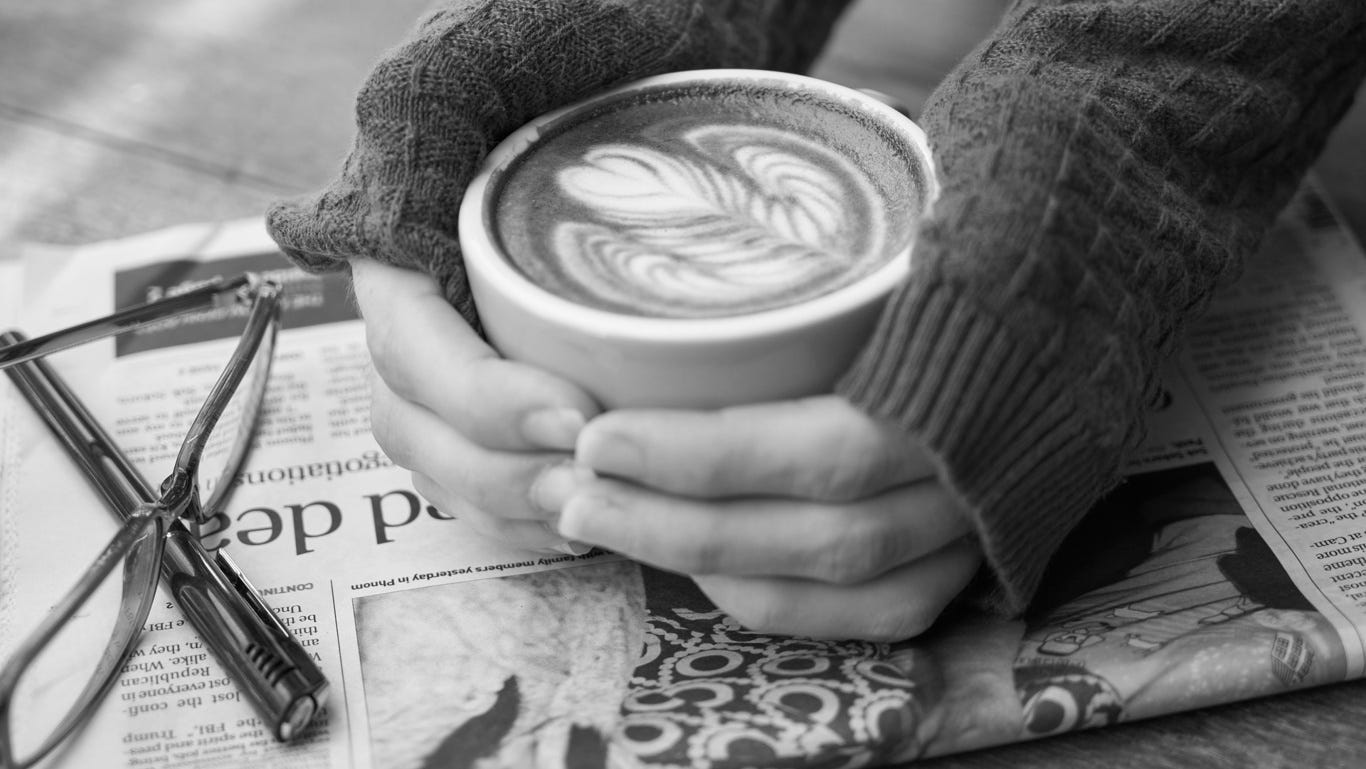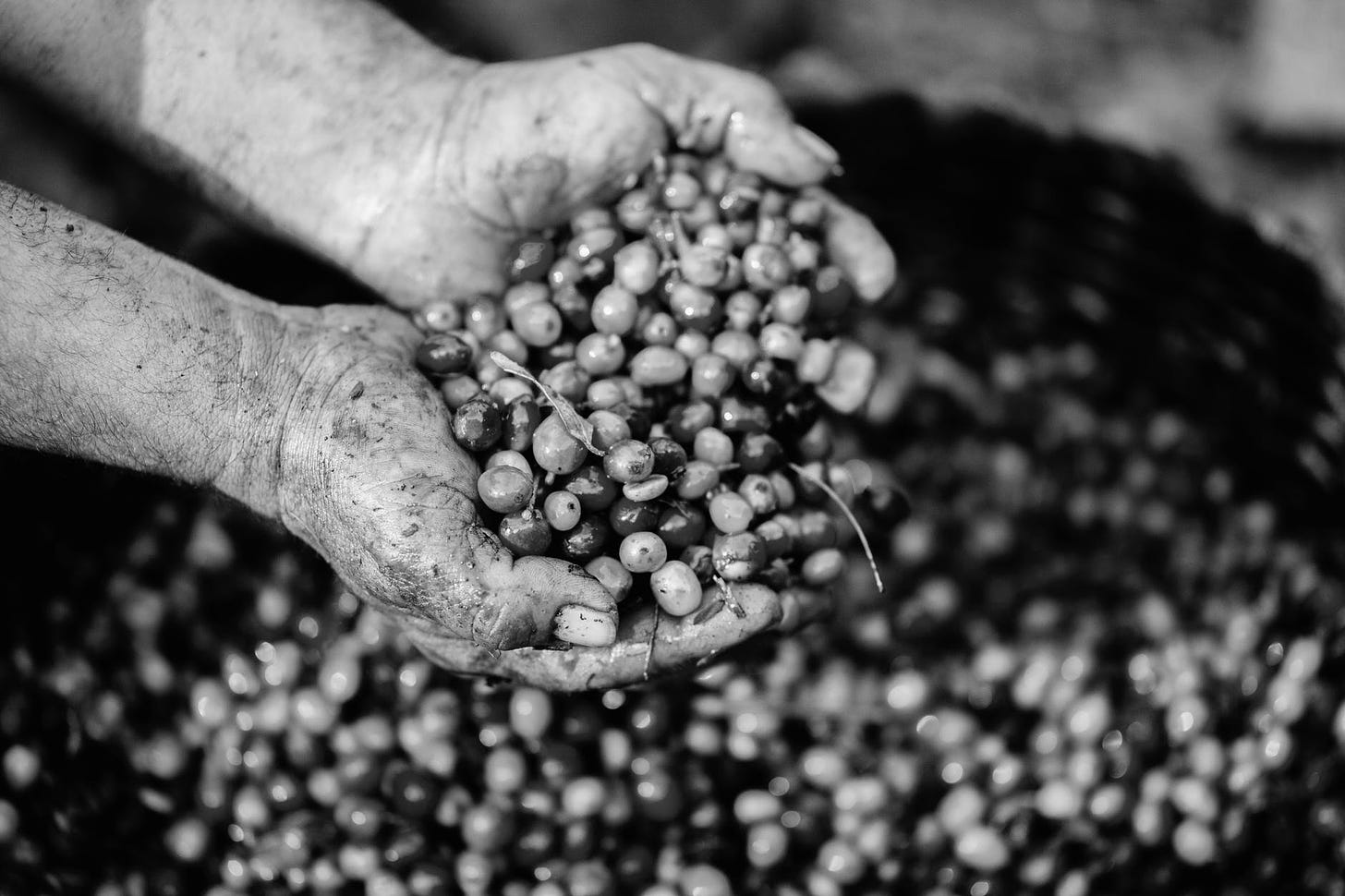
Hello and welcome to another Coffee News Roundup. This one might look a little different, as I’m slowly moving the weekly email over to Substack. It’s smoother, easier to use and, hopefully, gives a better email experience.
Subscribe to get the email delivered to your inbox—no faffing about with the website required.
Over time I hope to include other interesting stuff, like more interviews, reviews, and general rants. These might be part of the weekly newsletter, or they might be standalone emails. If you’re not interested in receiving multiple emails from the Pourover, please let me know.
And if you enjoy the Pourover, why not share it with someone?
Okay, so what’s been going on in coffee this week?
Re:co Reimagined: 2020 Symposium Heads Online Next Month - via Daily Coffee News
A lot of coffee events have been cancelled—or gone virtual—of late, so this comes as no big surprise.
Re:co Symposium, what Daily Coffee News refers to as “the annual forward-looking gathering of specialty coffee professionals, researchers, social leaders and more,” has decided to move online.
Re:co usually takes place right before the big Specialty Coffee Association Expo event, which of course was cancelled outright earlier this Spring. Now it will take place Thursday and Friday, July 16-17 on the interwebs.
According to Daily Coffee News, the symposium will follow the format of past Re:cos, with “experts from a wide range of backgrounds and professional fields adding to a broader conversation on a single topic.”
Reusable Cups Safe During COVID-19, Says Group of Health Professionals - via Daily Coffee News
Remember when the pandemic hit in earnest and coffee shops en masse decided to stop accepting customers’ reusable cups for fear of spreading the virus? The plastics industry was very happy about it.
Well, it turns out that those reactions, while they made a sort of sense at the time, may have been unwarranted.
Almost 130 scientists, doctors, and public health experts have signed a statement calling for the return of the reusable cup. The statement, which is supported by Greenpeace, says that, “Based on the best available science and guidance from public health professionals, it is clear that reusable systems can be used safely by employing basic hygiene.”
Assuming baristas don’t touch the reusable cup, but simply pour coffee directly into it (so long, latte art) then really the chance of transmission via coffee cup should be close to zero. Indeed, the CDC says that “transmission of novel coronavirus to persons from surfaces contaminated with the virus has not been documented.”
Obviously this doesn’t mean you should go around licking countertops or whatever, but it might be that the knee jerk reaction to reusable cups was just that.
Costa Has Launched A Coca Cola Coffee Range - via Delish
Coke-flavored latte, anyone?
Anyone?
No?
Lizards need their coffee, too: Could caffeine help bring threatened species back from the brink? - via Phys.org
Okay, before you start picturing an adorable lizard drinking an espresso, that’s not what this story is about.
This story is about lizard sperm.
The Yellow Spotted Monitor lizard is on the brink of extinction. Populations of this giant lizard species have plummeted as much 97% due to the increasing number of cane toads moving into their habitat.
Giant lizard enjoy eating cane toads; apparently they’re rather delicious. But they’re also lethal, leading to that rather concerning population crash mentioned above.
Hero scientists have taken to collecting and freezing lizard sperm in order to, hopefully, save the species from complete collapse. However, the unfreezing process has proven tricky, so these same researchers have had to look at unconventional techniques and substances to help the unfrozen reptile sperm get going again.
You can probably guess what they used.
No, it was caffeine.
The scientists were clearly pleased: “To our delight, we saw a huge increase in the number of moving sperm after freezing and thawing. It turns out, frozen lizard sperm need their morning coffee to get started just like us!”
Weirdos.

The Week In Corporate Greenwashing
While researching this week’s coffee news, this straightforward article on the UN’s news site (?) pop's up, entitled “First Person: Innovation brewing at Hawaii coffee farm.” Which, cool. Sounds interesting.
The person they’re interviewing is the General Manager of Kauai Coffee Company, which apparently owns “the largest coffee farm in the United States accounting for 25 to 30 per cent of US production in any given year.” According to the company’s website, its farm consists of 4 million coffee trees over 3,100 acres.
The General Manager talks about all the great sustainability measures his company has put in place, which mostly involve stuff like AI and robots. You know, for sustainability, not to replace the workforce.
Kauai Coffee Company is also very focused on soil nutrition: “Rather than injecting nutrients into the trees, which is like keeping an athlete alive on an IV, we're now recognizing that the health of the tree and the quality of that fruit depends on the health of the billions and trillions of microorganisms.”
Which means that previously they were injecting nutrients into the trees?
Anyway, being curious about this enormous farm that accounts for a quarter of all US coffee production, I did a bit of light googling and found out that the company is owned by Massimo Zanetti Beverage Group, which is the world’s largest privately owned coffee group and has a yearly turnover of around $1.2 billion.
Is Coffee Good For You?
It can help lower the risk of skin cancer, according to a new study.
The Italian research reviewed 18 cohort studies, which themselves looked at the efficacy of “anti-inflammatory foods and food components” on skin cancer prevention.
The studies covered 2.5 million participants and looked at fruit, vegetables, coffee, and tea among others. Of the 18 studies, coffee was considered in seven and in six was found to have a positive effect—especially if the coffee consumed was caffeinated.
It was, in fact, the only element studied that was “consistently associated with a protective effect,” according to the study’s authors.
What To Read
You Need To Wear A Mask, Dammit by Jordan Michelman
The Socially Conscious Shopper’s Guide To Buying Coffee And Tea by Katie Okamoto
Black, No Sugar—A Reflection By A Black Coffee Professional by Allie Dancy
Until next week, drink good coffee. And wear a mask, dammit!




